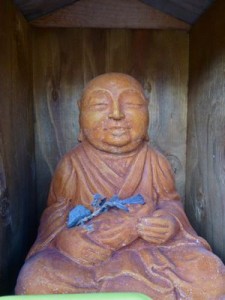
“There is no action in this world that can be stamped as sin or virtue; it is its relation to the particular soul that makes it so.” ~ Inayat Khan
Let’s talk about respecting other people. We can get caught up in assumptions about what it means to respect someone. At the risk of being a bit controversial, I want to broaden the context of respect. We can get too ‘spiritually correct’ and become rigid and rule bound instead of using our personalities as vehicles for development of the soul.
Respecting others does not necessarily require silence, feigned agreement, or withdrawal. Personally, I do not feel respected by these behaviors. I feel respected when someone cares enough to engage with me, and even to challenge my views, especially when they do so to discover me, to explore
together, to advance mutual understanding, to bring forth more comprehensive values, or to resolve discomfort. Such engagement, whether or not we agree, is often an expression of love.
I am thinking of my best friends. We respect and trust one another enough to engage in healthy dialectic. This means that if we do not agree on something, we each hold and expose our views, exploring back and forth, influencing one another’s views in the process. I have gained depth and perspective by engaging like this with people I respect.
Someone who does not have the strength and confidence to hold a differing point of view, or who uses apparent (not genuine) agreement in an attempt to be liked, or who retreats from  those with whom they disagree misses out on this richness and development.
those with whom they disagree misses out on this richness and development.
Disagreeing with people can be an expression of real respect. In respectful disagreement we let another person know that we consider them strong and flexible enough to take in a different point of view. We are actively or tacitly inviting their views. We are opening ourselves to dialectic.
Americans tend to be conflict avoidant. This is not true of most native New Yorkers–many of whom enjoy playfully criticizing people who are indirect. When I have visited, I have taken comfort in knowing just where people stand, and received active appreciation for the same.
In rural India, I have witnessed people standing a spread-hand-width apart, engaging in loud, animated voices. They’d exchange a few sentences, reach a conclusion, waggle their heads and say the equivalent of ‘okay’ in a quieter tone, then turn and be on their way. I witnessed trust, respect, and a lack of self consciousness that gave them the freedom to quickly resolve their concerns.
In my late twenties I spent a few weeks in Europe at a large camp with people from several countries. They actually criticized me–and Americans in general–for not bringing forth clearly defined views and opinions in conversation. They found conversing with Americans boring. They were accustomed to EXPLORING their points of disagreement. Whether or not they appreciated and enjoyed their differences, honest expression contributed to understanding, being on solid ground, and to enjoying a more distinct sense of identity.
Even controversy, when handled with respect, allows us to explore the edges, peaks and valleys of a topic, clarify who we are, and to learn to exercise our values and ethics.
Conflict is necessary to develop a sense of self. Conflict need not spring from anger. It can spring from passion about important values.
If anger arises, and we are open to learning, we discover what is important to us and what we need. The key is to keep the heart open, especially when angry.
Anger is a powerful force, which can be used destructively, or to create boundaries, clarity, decisive action, and even to inspire greater values. Conflict can be used in the same ways.
Those of us who become overly passionate in behalf of other people do need to learn to refine our expressions and allow people to make their own choices. Feedback helps us learn this. Meanwhile, those whose toes we may step on have a chance to learn to put forth their boundaries and to speak up.
I suspect that some conflicts are part of what could be called the Divine Plan. We can use them to stimulate insight and to master our rough edges. We may be challenged to accept ourselves if we overstep, but accepting some conflict is healthier than hiding in the corner for fear of causing offense.
What do YOU mean by respect?
When is engaging in conflict more loving then stepping away?
When is remaining silent a missed opportunity for love?

 make up something they understand, or feel unsettled.
make up something they understand, or feel unsettled.





















